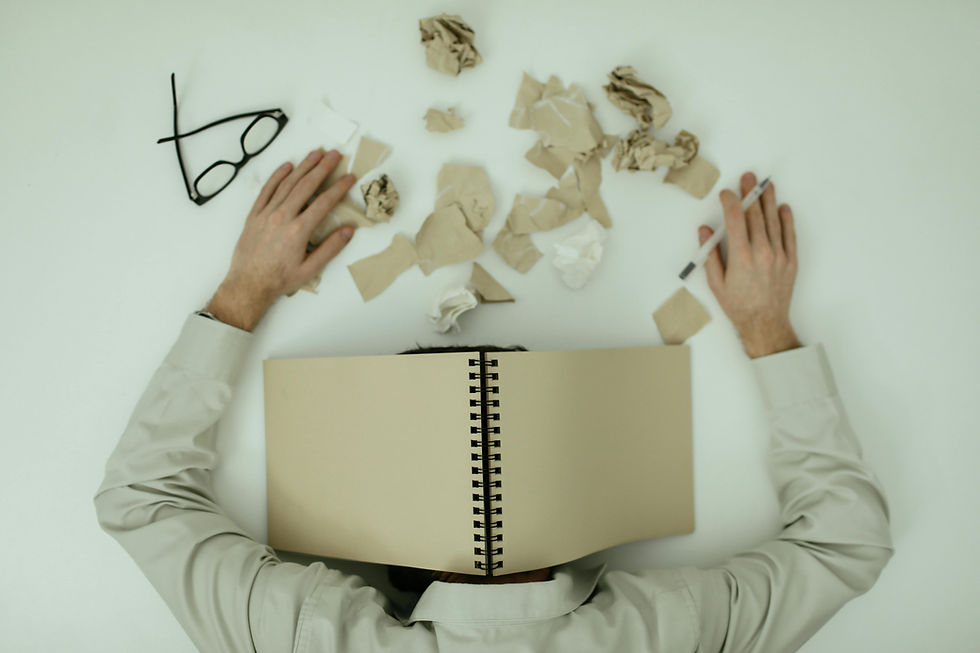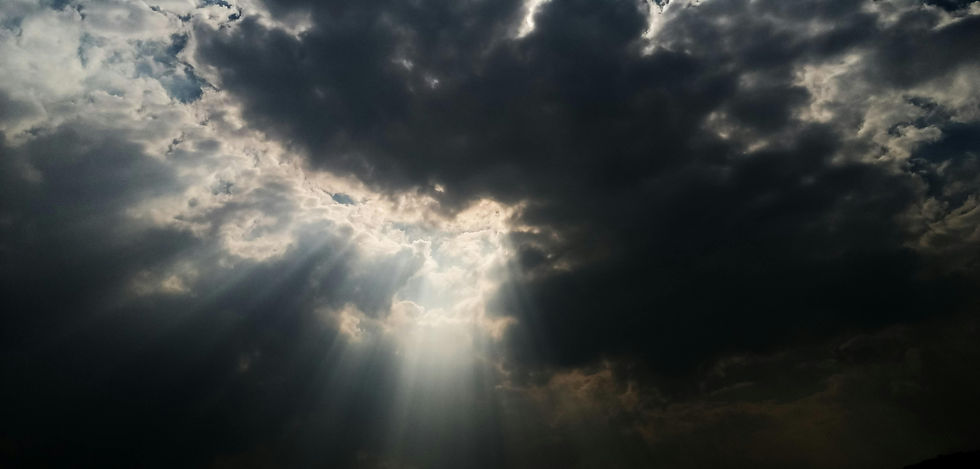What Burnout Really Feels Like (And What No One Tells You)
- Aubrey

- Aug 1, 2025
- 2 min read
Updated: Aug 13, 2025

Burnout isn’t always dramatic.
Sometimes it’s staring at your screen for hours, knowing what you should do, but feeling like you physically can’t do any of it.
Sometimes it’s Sunday dread so heavy it feels like grief.
Sometimes it’s smiling on the outside while inside you shut down.
When people talk about burnout, they mean exhaustion, but for me, burnout made me disappear from myself.
Functional freeze: The burnout no one talks about.
In my last months at work, I was stuck in a state I didn’t know how to name back then. I looked calm and capable, but inside, I was disconnected. Not fighting, not running, not resting...just stuck.
I wasn’t breaking down at work, but I was fading, quietly.
I’d take calls, send emails, and coach others through their stress, while my brain screamed for relief. My heart raced over small tasks. I felt like I was bracing for something bad but couldn’t name it. Every morning, I woke up feeling overwhelmed and was instantly in tears.
I hated Sundays because they meant Monday was coming.
The pressure of being “the rock.”
I was supposed to be the strong one, the safe space, the one people called at midnight.
But no one saw the cost.
No one saw how exhausted I was carrying everyone else’s burdens and ignoring my own. There was a low, constant panic stealing my energy and spark.
And the scariest part? I got used to it. I accepted it as my "normal."
The disconnection.
At work, burnout was just a buzzword. Managers told us to take breaks. I thought a weekend off would fix it.
It didn’t.
Burnout hollowed me out until I was a shell.
I told my boss things were overwhelming. The answer? More pressure, more expectation.
Because I was “strong,” everyone assumed I could handle it.
Inside, I was breaking.
At my last job, my soul drained day by day.
The numbness grew until I sat through shifts doing almost nothing but answering messages. I knew what to do, but my body wouldn’t move, my mind wouldn’t focus. Everything was gray.
It wasn’t just burnout.
It was emotional shutdown.
And I didn’t know how to explain it because I didn’t understand it myself.
What I know now.
Burnout isn’t always loud.
Sometimes it looks like high performance.
Sometimes it sounds like, “You’re so strong.”
Sometimes it feels like losing yourself so slowly you forget who you used to be.
Burnout doesn’t just steal energy, it steals your sense of self.
It disconnects you from your desires, your joy, your truth.
The longer you stay in it, the more you start to believe that’s just life.
It’s not.
That’s surviving, not living.
You don’t have to wait until you collapse to change.
Your worth isn’t your output.
Your value isn’t your resilience.
If this feels like you, try journaling:
Where in my life am I functioning but not really okay?
What’s one thing I wish someone would notice about me right now?
Write without judgment. Let it out. Healing often starts with admitting the truth.





Comments